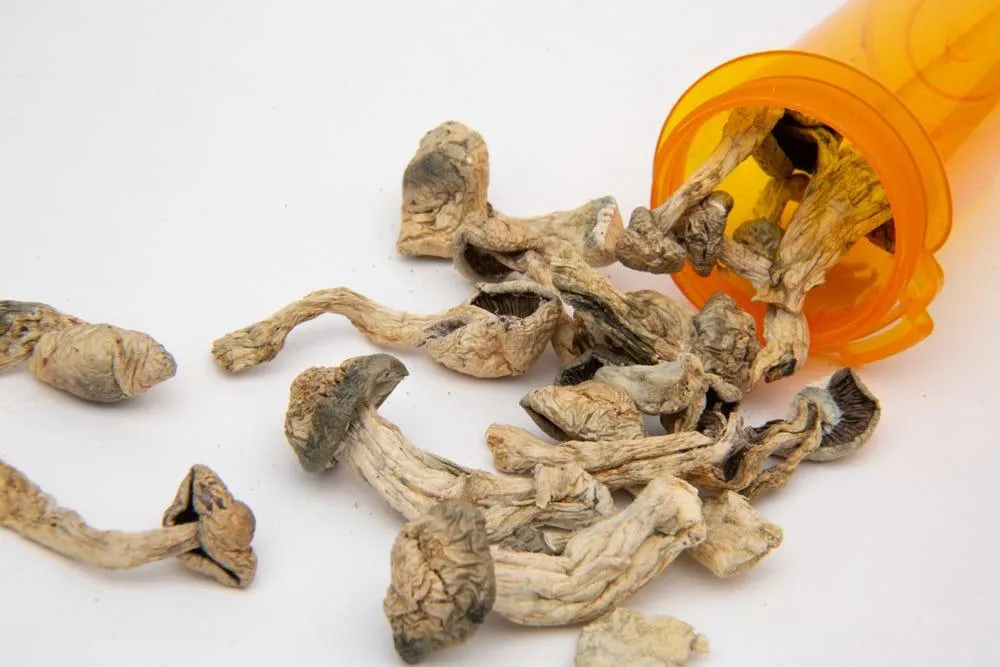Our Latest Articles

Nervous System Regulation: Unveiling the Connection of Neuroscience and Consciousness with Psilocybin
Nervous System Regulation: Unveiling the Connection of Neuroscience and Consciousness with Psilocybin
The nervous system is a complex network of cells, tissues, and organs that coordinates and regulates the body's functions. It facilitates our ability to perceive, process, and respond to the world around us. In recent years the field of neuroscience has made significant strides in understanding the intricate mechanisms behind nervous system regulation. One fascinating area of research involves the exploration of consciousness and the potential role of substances like psilocybin in altering our perception and expanding our understanding of the mind.
The nervous system is divided into two main components: the central nervous system (CNS) and the peripheral nervous system (PNS). The CNS consists of the brain and spinal cord, while the PNS includes the nerves that extend throughout the body. These two systems work in harmony to transmit signals and regulate bodily functions.
Neuroscience is the scientific study of the nervous system, aiming to unravel its complexities and understand how it influences our thoughts, emotions, and behaviors. One of the most intriguing aspects of neuroscience is the exploration of consciousness. Consciousness refers to our subjective experience of the world and our awareness of our surroundings as it pertains to ourselves. Researchers have long sought to understand the neural correlates of consciousness, attempting to identify the specific brain regions and processes involved. While the exact mechanisms of consciousness remain unknown, studies have shown that certain substances, such as psilocybin, can profoundly alter consciousness and provide unique insights into the nature of the mind.
Psilocybin is a naturally occurring psychedelic compound found in certain species of mushrooms. When ingested, psilocybin is converted into psilocin, which interacts with serotonin receptors in the brain. This interaction leads to altered states of consciousness characterized by profound perceptual and cognitive changes. Research conducted at prestigious institutions, such as Johns Hopkins University and Imperial College London, has demonstrated the therapeutic potential of psilocybin in treating various mental health conditions, including depression, anxiety, and addiction. These studies have shown that psilocybin-assisted therapy can induce transformative experiences, leading to long-lasting positive changes in mood, behavior, and overall wellness.
Psilocybin's effects on the nervous system are multifaceted. It modulates the activity of serotonin, a neurotransmitter involved in mood regulation, cognition, and perception. By binding to serotonin receptors, psilocybin alters the balance of neurotransmitters in the brain, which leads to changes in neural activity and connectivity. Functional magnetic resonance imaging (fMRI) studies have revealed that psilocybin increases the communication between brain regions that are typically disconnected. This enhanced connectivity may underlie the profound alterations in consciousness experienced with psilocybin. Furthermore, psilocybin has been shown to promote neuroplasticity, the brain's ability to reorganize and form new connections, which contributes to its therapeutic effects.
The therapeutic potential of psilocybin is promising; it’s essential to approach its use with intention. The study of nervous system regulation through the lens of neuroscience offers profound insights into the complexities of consciousness. Psilocybin is a naturally occurring compound and is a fascinating tool for exploring nervous system regulation and its therapeutic potential. As research in this field continues to advance we unlock new avenues for understanding the mind and developing innovative treatments for physical and mental health.
Dr. Nicole Maddox DC,
Innovative in Consciousness, and Sustainable Health
Dr. Maddox's passion lies in educating and inspiring her patients, guiding them toward individualized, sustainable health and wellness. Her extensive background has shaped her unique approach to health care, emphasizing the inseparable connection between physical, mental, emotional, and spiritual well-being. Her holistic approach in regulating the nervous system consciously has helped numerous people reach their wellness goals. You can connect with Nicole at:
or
Resources:
- Koch, C., Massimini, M., Boly, M., & Tononi, G. (2016). Neural correlates of consciousness: progress and problems. Nature Reviews Neuroscience, 17(5), 307-321.
- Carhart-Harris, R. L., & Goodwin, G. M. (2017). The therapeutic potential of psychedelic drugs: past, present, and future. Neuropsychopharmacology, 42(11), 2105-2113.
- Nichols, D. E. (2016). Psychedelics. Pharmacological reviews, 68(2), 264-355.
- Vollenweider, F. X., & Kometer, M. (2010). The neurobiology of psychedelic drugs: implications for the treatment of mood disorders. Nature Reviews Neuroscience, 11(9), 642-651.
- Catlow, B. J., Song, S., Paredes, D. A., Kirstein, C. L., & Sanchez-Ramos, J. (2013). Effects of psilocybin on hippocampal neurogenesis and extinction of trace fear conditioning. Experimental brain research, 228(4), 481-491.
- Ly, C., Greb, A. C., Cameron, L. P., Wong, J. M., Barragan, E. V., Wilson, P. C., ... & Duim, W. C. (2018). Psychedelics promote structural and functional neural plasticity. Cell reports, 23(11), 3170-3182.
Want to stay in touch?

LEGAL
FOLLOW US
Copyright 2026. All Rights Reserved.

